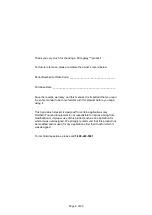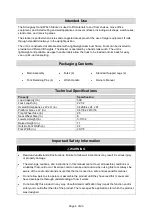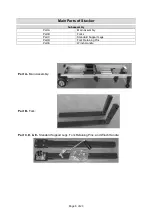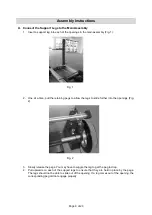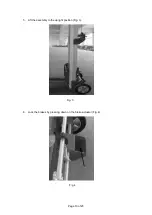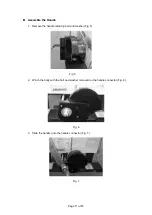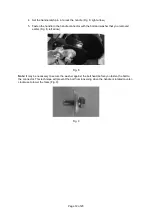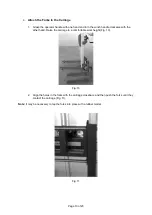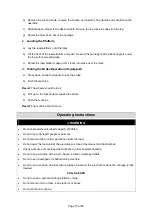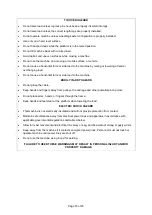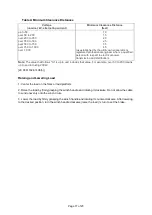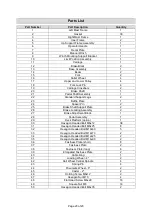
Page 6 of 23
⚠
CAUTION
STACKER USE AND CARE
•
Do not force the stacker. Products are safer and do a better job when used in the manner for
which they are designed. Plan your work, and use the correct product for the job.
•
Check for damaged parts before each use. Carefully check that the product will operate properly
and perform its intended function. Replace damaged or worn parts immediately. Never operate the
product with a damaged part.
•
Store the stacker when it is not in use. Store it in a dry, secure place out of the reach of children.
Inspect the tool for good working condition prior to storage and before re-use.
•
Use only accessories that are recommended by the manufacturer for use with your product.
Accessories that may be suitable for one product may create a risk of injury when used with
another tool. Never use an accessory that has a lower operating speed or operating pressure than
the tool itself.
•
Keep guards in place and in working order. Never operate the product without the guards in place.
Specific Operation Warnings
⚠
WARNING
•
Do not exceed the rated load capacity of 500lbs.
•
Do not use to transport people or animals.
•
Do not stand under or allow personnel under the load.
•
Do not lower the load unless the area below is clear of personnel and obstructions.
•
Before moving the load, assure that the load is centered and secured with a load restraining
device.
•
Check work area for overhead obstructions or other possible hazards.
•
Do not use a machine with a worn, frayed, kinked or damaged cable.
•
Do not use a damaged or malfunctioning machine.
•
Do not use a machine with less than 4 wraps of cable on the winch drum when the carriage is fully
lowered.
FALL HAZARD
•
Do not use as a personnel lifting platform or step.
•
Do not stand or sit on forks, load platform, or boom.
•
Do not climb on machine.
TIP-OVER HAZARD
•
Do not raise load unless leg lock pins have been properly inserted into legs.
•
Do not raise load unless the correct length legs are properly installed.
•
Do not operate machine unless wheel/leg/caster configuration is properly installed.
Summary of Contents for 61134
Page 19: ...Page 19 of 23 Parts Diagram ...


